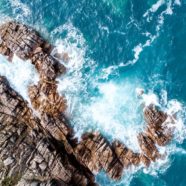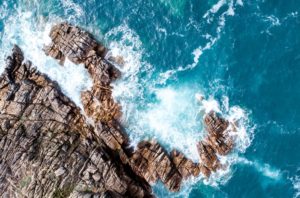Coastal Dystopias
, 2-3.30pm GMT
Online via Zoom (booking required)
I’ll be speaking about “Coastal Dystopias” as part of the Institute for Historical Research (IHR) series on “Coastal Connections.” Caroline will join Prof. Dr. Silja Klepp (Kiel), Dr Yi-Chia Chen (UColorado-Denver) and Prof. Dr. Teresa Sabol-Spezio (Independent Scholar, formerly at the Rachel Carson Center for Environment and Society) to discuss how coastal regions have inspired utopian and dystopian anticipations of ravaged future societies set amidst environmental crisis, calamity and apocalyptic devastation.
The Coastal Connections series is running in Spring 2021 to extend interdisciplinary research connections relating to coastal histories. It is convened by James L. Smith (University College Cork), Tuba Azeem (Victoria University of Wellington), Melanie Bassett (University of Portsmouth), Elsa Devienne (Northumbria University), Xiaofei Gao (University of Colorado), Joana Gaspar de Freitas (University of Lisbon); Isaac Land (Indiana State University), David Worthington (University of the Highlands and Islands), Hannah Boast (University College Dublin) and Harrie Neal (University of York).
Event description:
While traditional histories of shorelines often focused on the triumph of the seaside leisure economy or perhaps on subsistence-related activities such as navigation and fisheries, recent developments have cast a grim shadow on the site at which land and sea meet and have forced scholars to rethink coastal history in a more dystopian light. Beaches, for example, are no longer simply associated with innocence, freedom and sensuality, they are places of refuge—providing shelter for Australians fleeing fires in January 2020—sites of muted or open military conflict—as seen most recently in the case of Varosha in Northern Cyprus—and, most tragically, the last resting place for many refugees attempting the Mediterranean crossing to Europe. In parallel, many artists have recently invested the coast with dystopian scenarios, from Kim Stanley Robinson’s novel New York 2140 to J. A Bayona’s film The Impossible. This phenomenon is actually not as new as it may seem at first sight.
While many utopias have been set at the water’s edge, other narratives engaged with the dramatic quality of the shores with The Beach (1959), a Cold War movie dramatizing a nuclear doomsday, being a prime example. These cultural products remind us that the history of shorelines cannot be reduced to bathing beauties and dazzling resorts. In this seminar session, speakers coming from different disciplines (including history, geography, and literature) will discuss their research into the dystopian qualities of shorelines across the world. They will ask: why have coastlines been the (imagined or real) sites where a diverse array of dystopian scenarios have unfolded? Is there something new about the twentieth century and our present moment that makes coastlines appear particularly dystopian? How can we reconcile utopian/dystopian visions of the shoreline? And, finally, are all coastlines doomed, or are there more constructive ways to think about paths forward?
All welcome, this seminar is free to attend but booking is required.
For more information about the IHR “Coastal Connections” seminar series, contact: ihr.events@sas.ac.uk.
Featured image by Enrapture Captivating Media on Unsplash.








 Dr Caroline Edwards is Senior Lecturer in Modern & Contemporary Literature at Birkbeck, University of London. Her research and teaching specialisms are in 21st century literature and critical theory, science fiction and post-apocalyptic narratives, Marxist aesthetics, and utopianism.
Dr Caroline Edwards is Senior Lecturer in Modern & Contemporary Literature at Birkbeck, University of London. Her research and teaching specialisms are in 21st century literature and critical theory, science fiction and post-apocalyptic narratives, Marxist aesthetics, and utopianism.
Follow / Contact